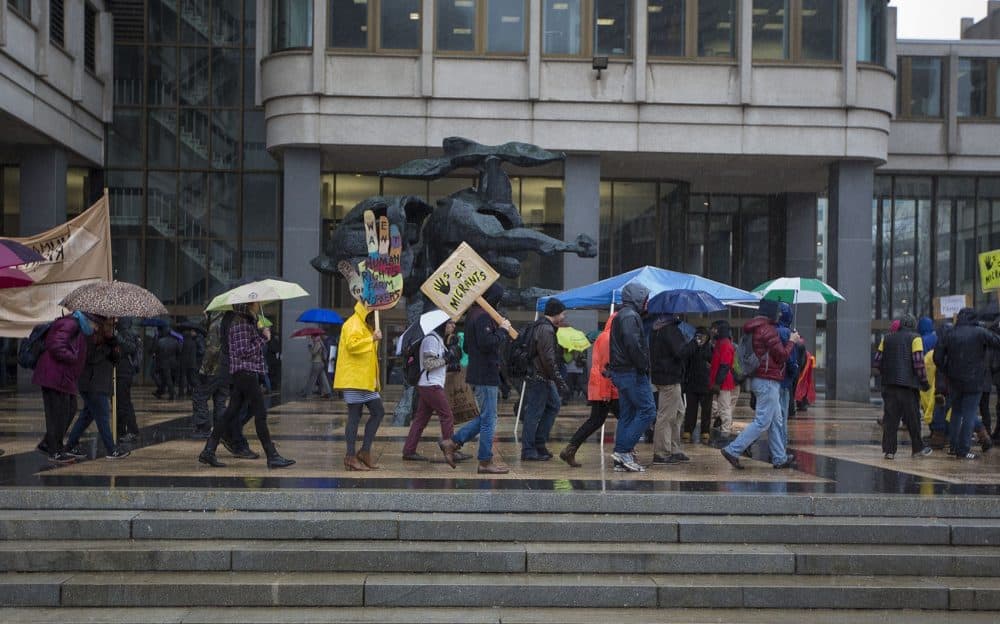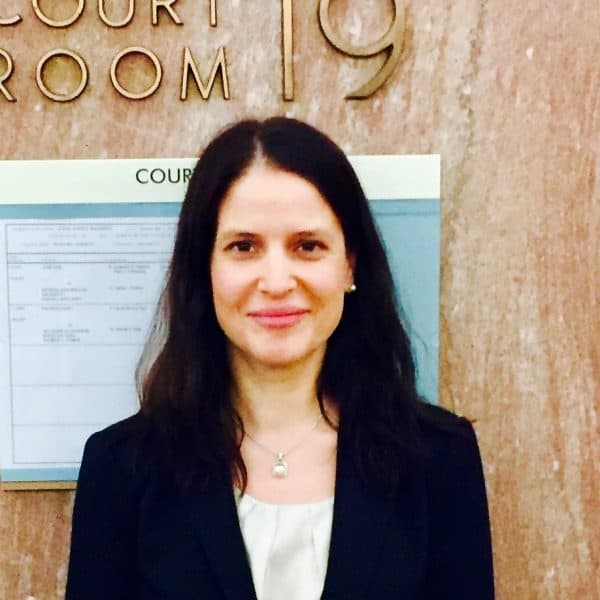Advertisement
Commentary
The Government Can Now Detain My Immigrant Clients Indefinitely

I was sitting at my desk in my downtown Boston office recently, the sharp winter sunlight angling towards my phone. I needed to make a call that any immigration lawyer would dread: notifying a client that she may have to fight a deportation order from a detention center — instead of from home — because of a decision by the Supreme Court.
The case in question, Jennings v. Rodriguez, was decided in February. In his majority opinion, Justice Samuel Alito upended years of precedent by reversing a decision by the Ninth Circuit Court of Appeals. His interpretation no longer permits some immigrants in deportation proceedings to post bail, and maintain their freedom, while the courts decide their fate. The decision has doomed thousands of non-citizens to months or even years of incarceration, including many who will ultimately win the right to stay in the United States.
In New England, as in many other regions of the U.S., immigration detainees are held alongside criminal defendants, and visiting them entails a small but unpleasant taste of their loss of liberty.
Until last month, immigrants who were not deemed dangerous or a flight risk had the opportunity to contest their deportation, without the threat of incarceration.
I’ve heard the clang of the heavy metal doors, smelled the noxious cafeteria odors, and been scolded for procedural “infractions” (like wasting an officer’s time when her job required monitoring a long meeting with one of my clients). I once threw away chocolate that an officer gave me on Valentine’s Day because I couldn’t disassociate it from my jail-induced sick feeling.
Even for us attorneys, it takes some time to adjust to the rhythms of a jail. I can't suppress an ironic smile remembering my first trip to an immigration unit on the 10th floor of a facility in Boston. I entered an elevator as I normally would and allowed the door to shut behind me, but the buttons were unresponsive. Naturally: I had to wait for an officer to send the elevator where it needed to go. The loss of authority over my own movement was unsettling.
Worse was the time I got locked in an attorney-client visiting room for 20 minutes. It might have been during one of the prescribed times for detainee “head count” across the detention center or there might have been a “shift change” among the officers. Either way, I repeatedly hit the buzzer that signaled, “Let me out!” and fantasized about breaking through the impossibly thick glass windows.
Attorneys grow accustomed to these temporary unpleasantries. But we also see and hear about conditions that will never be tolerable. The unit that is all open space, filled with beds, where the lights are always on. The unit where people have to wait in the middle of the night to use the toilet and sometimes resort to urinating in plastic bags. The stress of having a volatile cellmate whom you try to appease by offering the bottom bunk. In the worst instance, watching the spectacle of a fellow inmate who committed suicide being rolled out on a stretcher.
Advertisement
The consequence, of course, is that many detainees give up and take a deportation order even when they know they have strong cases. Some years ago, I found myself in the odd circumstance of convincing a Liberian detainee to allow me to represent him in his asylum claim — he found the prospect of months in detention unbearable. His father and uncle had been killed in front of him and he fled Liberia with his aunt and cousins. We won his case and he was released, but his mental health was touch-and-go throughout the proceedings. And his is a relatively happy ending.
As a young attorney, I sometimes arrived in the office disheartened after a jail visit. My boss always said: The difference for us, is that we get to leave.
The Supreme Court, in its Jennings reversal, eliminated that shot at freedom.
Until last month, immigrants who were not deemed dangerous or a flight risk had the opportunity to contest their deportation, without the threat of incarceration. The Supreme Court, in its Jennings reversal, eliminated that shot at freedom.
The ACLU — who represented the detainees in Jennings -- now starts the battle for liberty afresh, making the case that even if the federal statute does not require bond hearings, the Constitution does. The litigation will likely last years, and the outcome is uncertain, but what other choice do they have but to fight? Thousands of lives hang in the balance.
